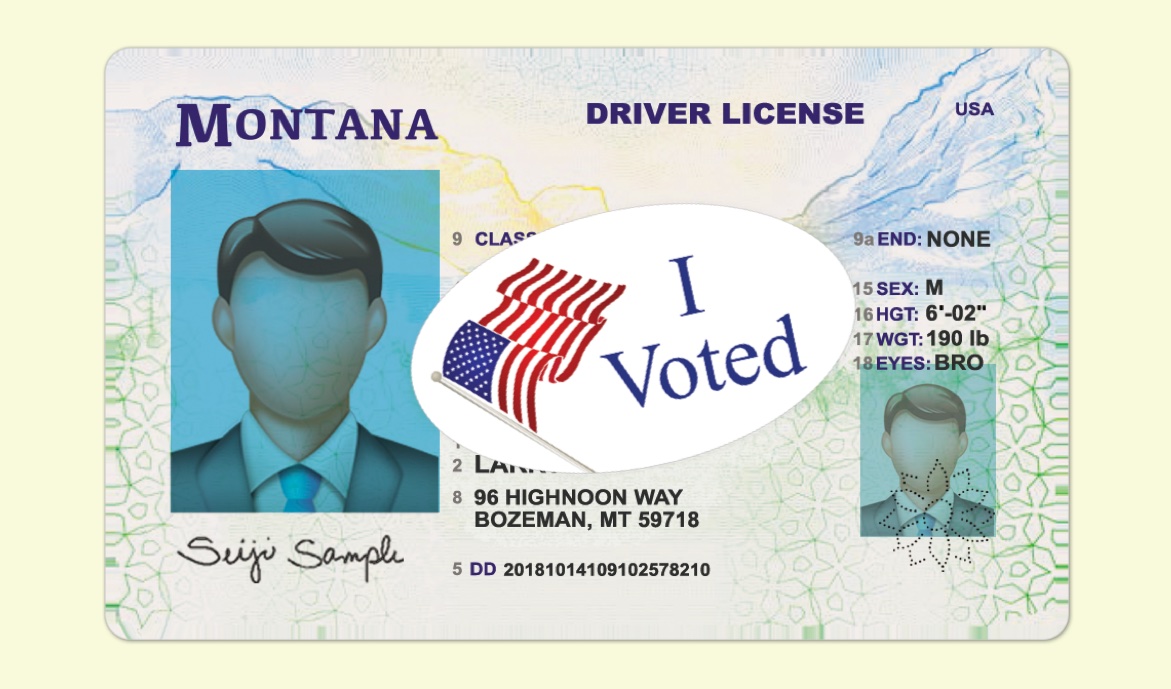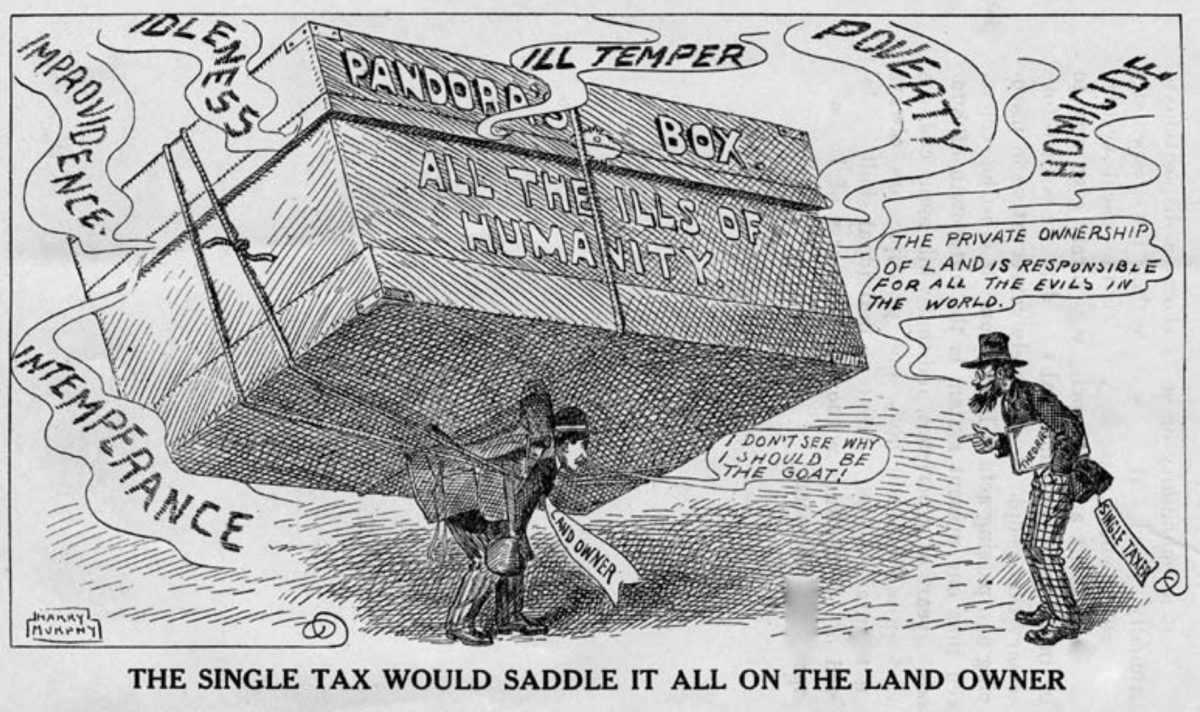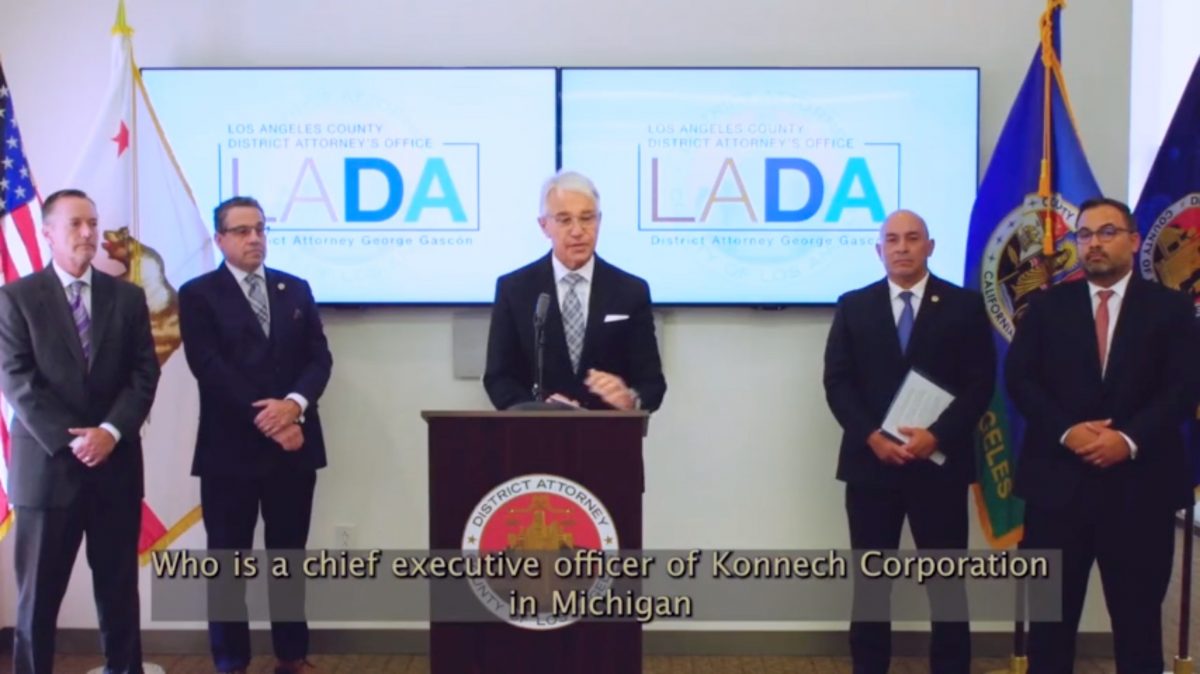House Bill 402 is a bill that attempts to bring Montana’s voting system into line with Montana’s Constitution, and in particular with Article IV, Section II, which requires that electors be U.S. citizens. The bill states that “[…] verification of a person’s citizenship is fundamental to fulfilling this Constitutional requirement” and intends to do so by creating a citizenship verification system for voting—something that has not been done in any other state in the U.S. before.
Rep. David Bedey (R-Hamilton) stated before the House State Administration And Veteran Affairs Committee that, “[…] citizenship holds a diverse society together—it connotes mutual commitment to a shared set of fundamental values as the bedrock of our political system. Sadly, in recent years, the idea of citizenship has been devalued and is the cause for the hyper partisanship that now infects our politics that is practiced today.”
An ABC FOX article on HB 402 in February reported,
“Legislation to establish a process for vetting whether new Montana voters are U.S. citizens failed to clear a vote in the state House Friday. House Bill 402 follows a recent case in which two foreign citizens appeared to have voted illegally in a 2021 municipal election in Montana. The two voters were in the country legally with working visas, and appeared to have been able to register and cast ballots for a mayoral race in the small Hi-Line town of Dodson. The prosecution stalled after they failed to show up for a hearing and could not be located afterwards.”
What the report fails to mention is that these two votes were the winning votes in the Dodson mayoral race.
The article goes on to state,
“HB 402 would have tasked the Secretary of State’s office with writing rules to verify citizenship when someone registers to vote in Montana. It failed on second reading 46-54, with some Republicans joining most Democratic lawmakers to vote it down. Several GOP lawmakers objected to language that would have let people vote while their citizenship was still being verified. A separate Republican-sponsored bill would require that “illegal aliens” be disallowed from voting in the state’s elections, but does not set forth any process for determining that status. That measure passed a committee vote Thursday.”
So what are we to make of this bill? Is it a needed safeguard against illegal aliens voting in our elections process? An unneeded additional layer of bureaucracy? A potentially dangerous move toward digital IDs? Let us delve in.
Though I searched for articles and videos on the subject of citizenship verification in voting, there was little to be found. Part of that is due to the fact that no system like this exists yet in the country. So there are not many individuals talking about the pros and cons, merits or drawbacks. That makes such a system difficult to analyze.
This system would have to be made absolutely secure from outside influence and from hacking. Montana’s elections system is already undergoing increased scrutiny due to its connections with Chinese-linked Konnech software which may be sending data overseas. It is unclear whether this new system would be connected to already-existing voting software or not.
A CNN report from July 2022 notes, “A massive online database apparently containing the personal information of up to one billion Chinese citizens was left unsecured and publicly accessible for more than a year—until an anonymous user in a hacker forum offered to sell the data and brought it to wider attention last week. The leak could be one of the biggest ever recorded in history, cybersecurity experts say, highlighting the risks of collecting and storing vast amounts of sensitive personal data online—especially in a country where authorities have broad and unchecked access to such data.”
This breach highlights the danger that would be associated with keeping a statewide database of citizenship information. That information would undoubtedly be connected with names and other information that would have the potential to be hacked, leaked, or sold online.
That being said, I do like that the bill’s creator took a thorough inventory of what was needed in creating a system of verification, including that it would account for the status of individuals undergoing the process of becoming U.S. citizens. This kind of forethought is important to the transitioning of a new system, and is a step that has been widely overlooked in state governments.
The new system would be implemented by January 1st, 2024 or “as soon as practicable afterward” and would involve the following parameters:
- Using information collected to verify citizenship status
- Designation of voters as “Verified”, “Not Yet Verified”, or “Noncitizen”
- Requiring voter registration to be accepted and processed while citizenship verification is pending
- Allowing a person to vote while citizenship verification is pending
- The DMV would assist the Secretary of State in verifying the citizenship status of applicants who submit their Montana driver’s license
The bill includes a fiscal note of $108,750 for the implementation of the system of citizenship verification. I asked Senator Theresa Manzella what this figure is based on. Interested citizens note that there are no parameters included in the fiscal note and that this is unusual. The note states a figure of $108,750, with $75,000 coming from the General Fund and $33,750 coming from the Proprietary Fund.
A layer of difficulty with this proposed system is that it would involve the DMV (Department of Motor Vehicles) and would involve the use of their system. The bill itself mentions, “REQUIRING THE MOTOR VEHICLE DIVISION OF THE DEPARTMENT OF JUSTICE TO ASSIST IN VERIFICATION WHEN AN APPLICANT PROVIDES A DRIVER’S LICENSE IN THE APPLICATION.”
At issue is that a driver’s license can be used as an ID for voting, but a driver’s license alone does not prove US citizenship.
In the House State Administration and Veteran Affairs Committee, the issue was raised regarding the US requiring “lawful presence” to obtain a driver’s license. An immigration attorney explained that proving lawful presence and citizenship are two different things. For example, visa holders are considered lawful permanent residents and can obtain a driver’s license. For that reason, a driver’s license does not prove citizenship. Thus, the DMV would have to work together with the Secretary of State when it comes to developing a citizenship verification process.
A controversial part of this bill is, “Requiring That A Person Whose Citizenship Status Is Not Yet Verified Be Allowed To Vote.” If it is found that large numbers of non-citizens or non-verified citizens have voted, it could have dramatic impacts on elections. The votes in question would undoubtedly have to be rescinded—and if there were a lot of these rescinded votes, they could upturn an election altogether. Also, since ballots are cast anonymously, a new election would need to be conducted as specific ballots could not be tied to specific voters and “uncounted.”
Another issue is the problem of what status individuals will have while the state is searching for a verification system. For example, will registrants who use a driver’s license be in “non-verified” status until a system can be found? Would non-citizens be allowed to register and vote while the Secretary of State searches for a new system? Unfortunately, with as little is presently known about the new citizenship verification system, answers are not forthcoming.
Yet another issue is that implementing a verification system for citizens will present some problems in regards to the native Indian reservations throughout the state. There are some voting issues particular to the reservations themselves.
In his novel Arrow To The Heart, Christopher Kortlander explains the intricacies of how voting works on the native Indian reservations in Montana. Kortlander writes specifically about the Crow reservation, but these issues can be expanded to the state’s other reservations, as well.
“The state of Montana does not have the authority to administer and supervise elections conducted on tribal property on the Crow reservation,” Kortlander writes. “Not surprisingly, the lack of jurisdiction colors election results, as voter fraud is rampant when there are no laws or law enforcement in place to guarantee the sanctity and validity of each individual vote.”
The language of the bill itself does not even seem to address the issues surrounding the Indian reservation voting process. Kortlander also writes, “[…] state law does not apply to American Indians located inside the perimeter of the Crow reservation. Because of this conflict of jurisdictions, there is no way to guarantee the sanctity of the ballot box.”
In addition, the practice of using multiple names on the reservations is also unaddressed by this bill. “One of the confusing elements of voter identification in Indian Country is the voter’s name,” Kortlander explains. “Every Crow Indian has two names: an American name and a Crow language name. And names can change without much notice. But identification documents can exist for both names, and so can voter registrations. Throw in an adoption or two, a marriage—common law, church, and sometimes state—and you can have a real assortment of names that can be interchanged nearly any time it is convenient.”
It has become clear that more information is needed on the specifics of how this system would be developed and implemented. As the bill is currently written, there is too much opportunity for corruption in the form of forward movement toward a digital ID, centralization of the data of citizens, and the potential of non-citizen votes to become normalized and sanctioned by the state.




This was a well written article. The question is how do we get past the corruption in many of the counties in Montana? Missoula County I believe in over ripe with corruption. Trying to get other good citizen’s on ballots for local and state seems almost impossible due to the payoffs that must be happening. We need to wake up all of Montana’s if not we are already headed in the direction of disaster.
Good analysis, Leslie!